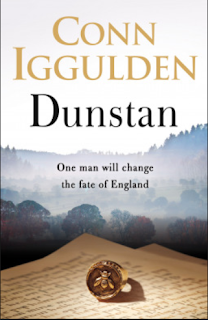 |
| Blood Forest by Geraint Jones |
I thought long and hard about Blood Forest while I was
reading it and after I finished it.
In the end, this is what I came up with…
I am not a keen reader of Roman historical fiction, or ‘swords
and sandals’ if you will. And yet I do read it and enjoy it if the setting is
beautifully and skilfully done. For example, the M.C Scott Roman historical fiction books. There is some skill at times in the Blood Forest settings, but
my issue was that the main setting was the squaddie comraderies. It was the
plot, sub plot, the story. For about 80% of the book. I need more going on than all the walking, talking, gutting, grunting, stabbing, walking,
talking, sleeping, sh*tting, spitting, talking. Not that it isn’t loved by
many. It simply isn’t something I get in to. Not my fault, nor the fault of the
author.
So, there was that. And it was an obstacle to get over, for
me. I don’t care about the gore or the swearing. I used to - as so much of it in
swords and sandal books, is not for the betterment of the read, it is only for
shock value - but now I expect it from these squaddie/grunt comraderies books
and I have learned to live with it, to a degree. If it is done in mature way.
My problem with Blood Forest was that after a promising
start, the comraderies became all the book was about and the plots and sub
plots were absent or presented in such a fleeting way that if you blinked you’d
miss them. I was even forgetting the loose plot about the memory loss and the Felix background. I have noted other reviewers commenting on absence of plot too and I
think to many who are looking for more, then it is quite distracting.
War for many soldiers can be boring. A lot of sitting around
waiting for orders to come down, waiting for transport, waiting to move out.
Waiting, waiting, waiting. Digging latrines. Talking about women's body parts.
Sleeping. Cleaning weapons. And for some, very little or no combat or action.
Sometimes not getting a shot off or getting shot at. So, if it is boring for
real soldiers, imagine how documenting this life can be boring for readers who
don’t need that detailed insight. Who already know about it perhaps.
I think that covers it. My issue was both. The roman squaddie/grunt
setting dominating plot devices and suspense. And my general disinterest in Romans
and dislike for them as a people.
Simple. Not simple. Yes?
In saying all that. Make up your own mind on this book. I
read it for a book club read, so I was already pushing the boat out into
unfavourable seas. My opinion is compromised.
- MM


